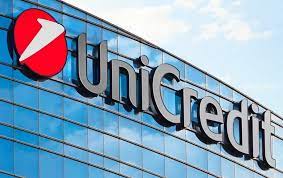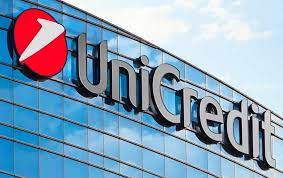
Italian bank UniCredit has expanded its search for a buyer for its Russian business beyond local investors as it prepares to exit the country, according to reports quoting sources.
UniCredit held conversations with local bidders, but growing Western sanctions impeded those attempts, leading a broadening of the hunt to include nations such as China and India, where one source suggested buyers would be willing to negotiate.
The second source stated that conversations were taking place with potential investors but did not name them.
In May, UniCredit CEO Andrea Orcel told analysts that the sanctions had gradually lowered the likelihood of a deal with a Russian buyer, and that "the window has gotten pretty tiny."
Russian businessman Vladimir Potanin, whose Interros holding firm purchased Societe Generale's Russian unit Rosbank, told Interfax in May that he had turned down a proposition to also purchase UniCredit's local arm.
The Italian lender is exploring elsewhere, though a Russian deal remains feasible, according to individuals who asked not to be identified due to the delicacy of the matter.
Investors in China, India, or Turkey, which have not supported sanctions on Russia, may be interested in assets whose value has been reduced by the flight of western firms as a result of the Ukraine conflict.
UniCredit is one of Europe's banks with the most exposure to Russia, where it operates the 14th-largest lender.
Andrea Enria, Europe's chief banking supervisor, said on Friday that he hoped the bloc's lenders would expedite their attempts to exit Russia.
To reduce its exposure to Russia, Orcel, a former investment banker, has employed asset swaps, such as swapping a loan to a Russian company with a loan to a European borrower from a Russian bank.
UniCredit was unable to finalise key deals to decrease exposure twice, according to Orcel, since its counterparty was sanctioned just before the signature.
However, Orcel rejected Russia fears this week, saying the country was no longer a threat to UniCredit after it booked 1.2 billion euros ($1.3 billion) in provisions in the first quarter to prevent prospective losses.
While UniCredit has stated that it is considering all alternatives, including exiting Russia, Orcel has stressed that extricating the bank would take time due to duties to employees and customers as well as the desire to maintain shareholder value.
(Source:www.latestly.com)
UniCredit held conversations with local bidders, but growing Western sanctions impeded those attempts, leading a broadening of the hunt to include nations such as China and India, where one source suggested buyers would be willing to negotiate.
The second source stated that conversations were taking place with potential investors but did not name them.
In May, UniCredit CEO Andrea Orcel told analysts that the sanctions had gradually lowered the likelihood of a deal with a Russian buyer, and that "the window has gotten pretty tiny."
Russian businessman Vladimir Potanin, whose Interros holding firm purchased Societe Generale's Russian unit Rosbank, told Interfax in May that he had turned down a proposition to also purchase UniCredit's local arm.
The Italian lender is exploring elsewhere, though a Russian deal remains feasible, according to individuals who asked not to be identified due to the delicacy of the matter.
Investors in China, India, or Turkey, which have not supported sanctions on Russia, may be interested in assets whose value has been reduced by the flight of western firms as a result of the Ukraine conflict.
UniCredit is one of Europe's banks with the most exposure to Russia, where it operates the 14th-largest lender.
Andrea Enria, Europe's chief banking supervisor, said on Friday that he hoped the bloc's lenders would expedite their attempts to exit Russia.
To reduce its exposure to Russia, Orcel, a former investment banker, has employed asset swaps, such as swapping a loan to a Russian company with a loan to a European borrower from a Russian bank.
UniCredit was unable to finalise key deals to decrease exposure twice, according to Orcel, since its counterparty was sanctioned just before the signature.
However, Orcel rejected Russia fears this week, saying the country was no longer a threat to UniCredit after it booked 1.2 billion euros ($1.3 billion) in provisions in the first quarter to prevent prospective losses.
While UniCredit has stated that it is considering all alternatives, including exiting Russia, Orcel has stressed that extricating the bank would take time due to duties to employees and customers as well as the desire to maintain shareholder value.
(Source:www.latestly.com)














